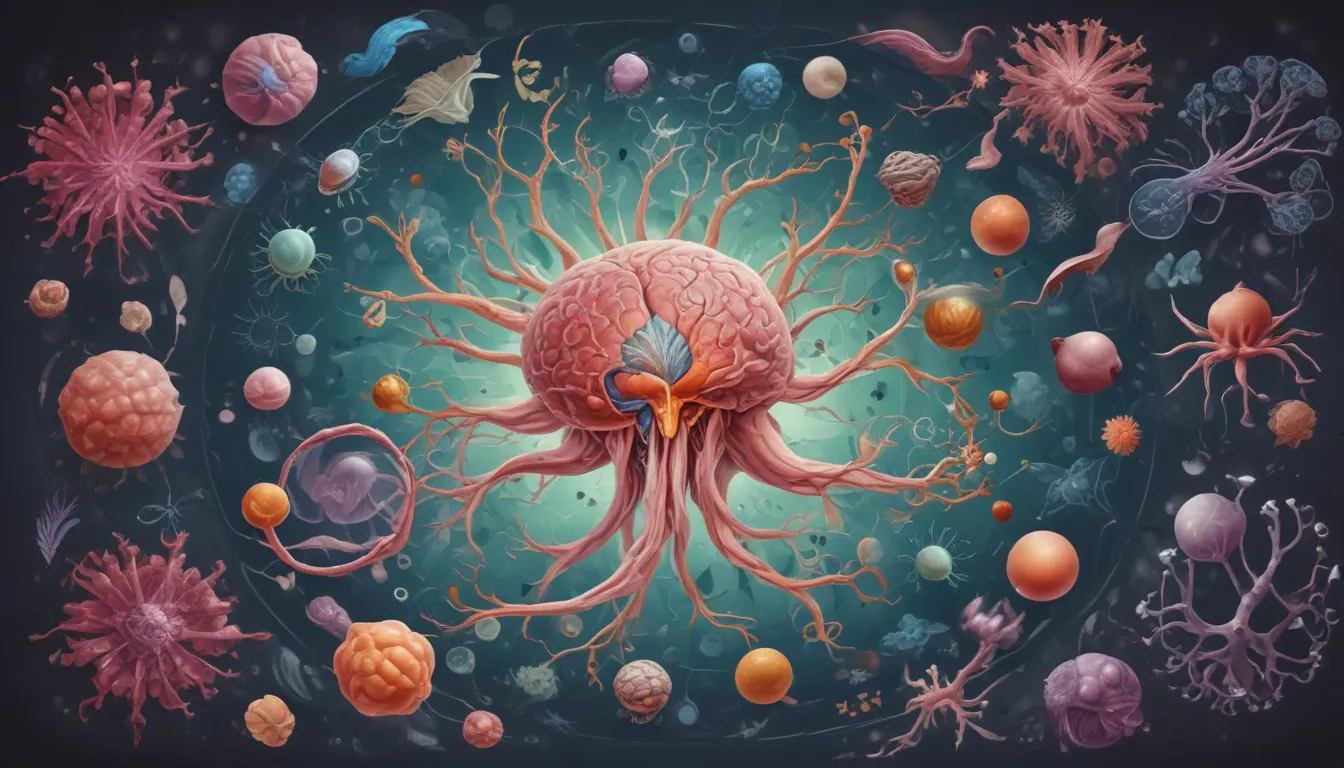A Note About Images: The images used in our articles are for illustration purposes only and may not exactly match the content. They are meant to engage readers, but the text should be relied upon for accurate information.
Hormones are essential chemical messengers that play a crucial role in regulating various processes within our bodies. From controlling moods to influencing metabolism, hormone release is a complex and fascinating phenomenon. Understanding how hormones are released and the impact they have on our well-being is key to maintaining a healthy and balanced life. In this article, we will explore 12 captivating facts about hormone release, delving into the intricate mechanisms behind hormone production and the glands responsible for their release. So, buckle up and get ready to dive into the world of hormone release!
Key Takeaways
- Hormones are chemical messengers that regulate bodily functions and can be influenced by stress, sleep, and environmental changes.
- They impact mood, growth, metabolism, and reproductive health, highlighting their crucial role in overall well-being.
- Understanding hormone release helps us appreciate the complexity of our bodies and make informed choices for optimal health.
Hormones: Messengers of the Body
Hormones are produced by various glands in the body and act as messengers, traveling through the bloodstream to target cells or organs to regulate various bodily functions. These chemical messengers are vital for maintaining a delicate balance within the body, ensuring that essential processes function smoothly.
The Trigger Behind Hormone Release
The release of hormones is triggered by specific signals from the body or external factors such as stress, exercise, sleep, or changes in the environment. These stimuli prompt the glands to release the necessary hormones to maintain equilibrium and respond to the body’s needs.
Local vs. Systemic Effects of Hormones
While some hormones act locally within the organ or tissue where they are released, others have a systemic effect, affecting multiple organs or systems throughout the body. This distinction is crucial in understanding how hormones influence various physiological processes.
The Rhythmic Dance of Hormone Release
Many hormones are released in rhythmic bursts, known as a pulsatile pattern, which helps to maintain a delicate balance and regulate physiological processes. This rhythmic release is essential for ensuring the proper functioning of the body’s various systems.
The Swift or Gradual Impact of Hormones
Some hormones, like adrenaline, can have an almost instant effect, while others, such as reproductive hormones, may take longer to exert their effects on the body. Understanding the timing of hormone effects can provide insights into their role in different physiological processes.
The Influence of Hormones on Mood and Behavior
Hormones play a crucial role in regulating emotions, mood, and behavior. For example, serotonin is known as the “feel-good” hormone, while cortisol is associated with stress. Understanding how hormones affect mood and behavior can help us navigate our emotional well-being more effectively.
Hormones and Growth: Partners in Development
Growth hormones and other growth factors are essential for normal growth and development, influencing physical characteristics, bone density, and muscle growth. These hormones are instrumental in ensuring that individuals grow and develop in a healthy and balanced manner.
Regulating Metabolism Through Hormones
Hormones such as insulin and thyroid hormones are involved in regulating metabolism, determining how efficiently the body uses energy from food and maintaining a healthy weight. Understanding the role of hormones in metabolism can help individuals make informed choices regarding their dietary and lifestyle habits.
Hormones and Reproduction: Orchestrating Fertility
Reproductive hormones, including estrogen, progesterone, and testosterone, regulate the menstrual cycle, fertility, and secondary sexual characteristics. These hormones play a crucial role in ensuring reproductive health and are essential for maintaining a balanced hormonal environment.
Hormones in Response to Stress: The Body’s Alarm System
When faced with a stressful situation, the body releases stress hormones like cortisol and adrenaline, preparing the body for fight or flight. Understanding how hormones respond to stress can provide insights into how the body adapts and copes with challenging situations.
Hormones and Sleep: The Rhythm of Rest
Hormones such as melatonin help regulate sleep-wake cycles, playing a vital role in promoting restful sleep and maintaining a balanced circadian rhythm. Ensuring the proper balance of sleep-regulating hormones is essential for overall well-being and vitality.
Disrupting the Balance: External Factors and Hormones
Environmental factors, diet, lifestyle choices, medications, and certain medical conditions can disrupt hormone levels and lead to imbalances in the body. Maintaining a healthy hormonal balance requires taking proactive steps to address external factors that may impact hormone release.
Conclusion: The Symphony of Hormone Release
In conclusion, hormone release is a fascinating and intricate process that plays a vital role in the functioning of our bodies. From regulating growth and development to influencing our moods and behaviors, hormones are truly remarkable substances. Understanding how hormones are released can help us comprehend various physiological and psychological processes that occur within us. Our bodies rely on a delicate balance of hormone release to maintain homeostasis, ensuring proper functioning and overall well-being.
FAQs
Q: What are hormones?
A: Hormones are chemical messengers produced by glands in our bodies that regulate various processes, including growth, metabolism, and reproduction.
Q: How are hormones released?
A: Hormones are released through a complex process involving the stimulation of glands by the hypothalamus and the subsequent release of hormones into the bloodstream.
Q: What are some examples of hormones?
A: Examples of hormones include insulin, estrogen, testosterone, cortisol, and adrenaline.
Q: What happens if there is an imbalance in hormone release?
A: An imbalance in hormone release can lead to various health issues, including hormonal disorders, mood swings, weight gain or loss, and sexual dysfunction.
Q: Can stress affect hormone release?
A: Yes, stress can significantly impact hormone release, with the adrenal glands producing stress hormones like cortisol and adrenaline in response to a stressful situation.
Q: How can hormone release be regulated?
A: Hormone release can be regulated through various factors, including feedback mechanisms, lifestyle modifications, medication, and hormonal therapies prescribed by healthcare professionals.
As you explore the fascinating world of hormone release, remember that each fact shared here is contributed by real users like you, ensuring diverse insights and credible information. Trust in our commitment to quality and authenticity as you delve deeper into the captivating world of hormones and beyond.






